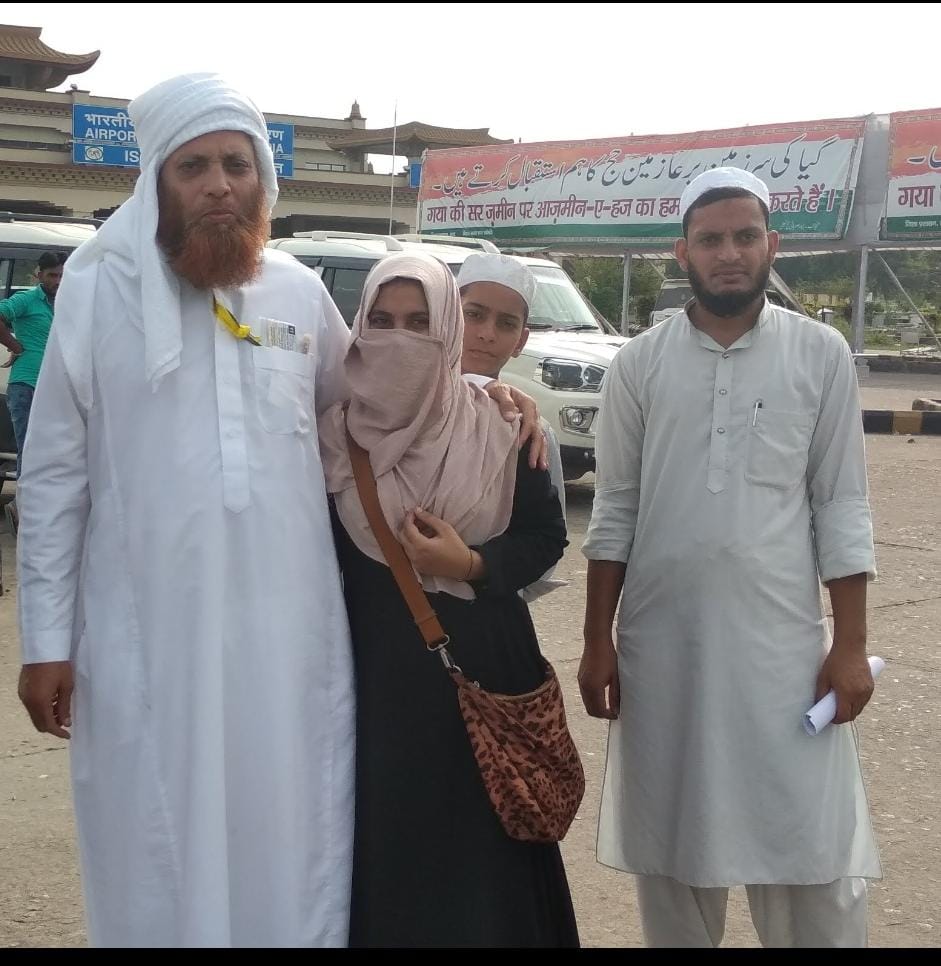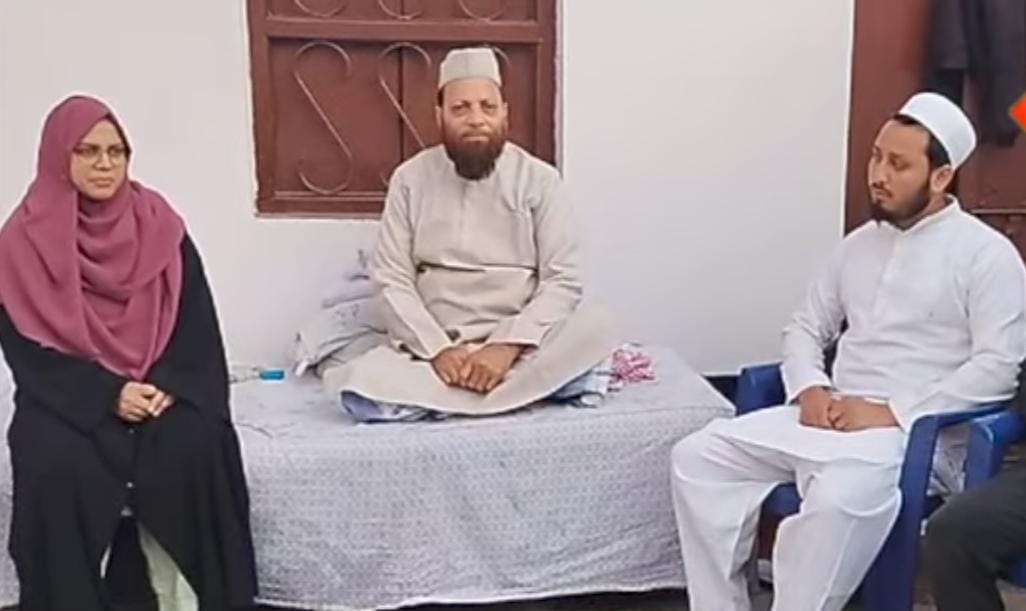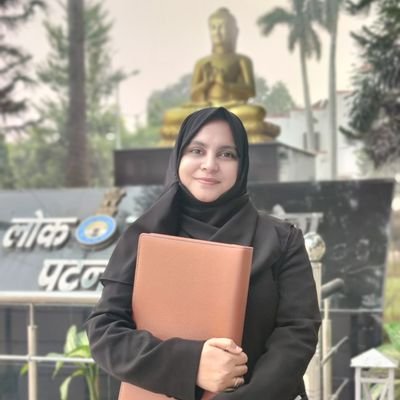Sami Ahmad, TwoCircles.net
Patna: Habiba Bukhari from Munger received on November 28, 2023, one of the most joyous pieces of news in her life: she had been selected for the Bihar Judicial Service. She secured 30th rank in the general category. This remarkable achievement of hers not only marks a significant personal victory but also reflects the strength of her determination and resilience in the face of numerous challenges.
Habiba comes from a modest background. Her father, Ahmad Bukhari, is an imam (prayer leader) at the Gulzar Pokhar mosque in Munger, which is located about 200 kilometers east of Bihar’s capital of Patna. Her mother is a homemaker. Despite the simplicity of their lives, the family’s support for Habiba has been unwavering.
Ahmad shared a heartfelt moment with TwoCircles.net. Recalling the night of November 28 when his daughter first called him with the good news, he said, “I got a video call from Habiba who was crying. I asked her to calm down and tell me why she was crying. After controlling her emotions, she informed me that she had been selected for the Bihar Judicial Service. Such was her joy!”
A bright student from an early age, Habiba completed her BA LLB and LLM degrees from Aligarh Muslim University (AMU). She also completed her schooling from there, though she began her academic journey at a Hindi-medium government school in Munger. During her high school years, she studied Urdu, Arabic, Political Science and English. Today, she is pursuing a Ph.D. from AMU.

When asked about her future plans, Habiba said she hopes to complete her Ph.D. while serving as a judicial officer. “If I am allowed, I would love to continue my Ph.D. and work as a judicial officer,” she said.
A hafiza (who memories Qur’an) of five chapters of the holy book and a woman who wears a headscarf, Habiba’s choice of career in the judiciary was driven by a strong sense of personal values. “For me, a safe workplace is the most important thing. I believe the judiciary offers the safest environment to work in. It provides both financial security and stability,” she explains. While acknowledging the alternative of litigation, she notes the additional struggles it entails, especially for someone without a strong background.
Her journey into law was inspired by the influence of her batchmates at AMU who were preparing for their BA LLB after high school. Habiba focused largely on self-study to prepare for the judicial services exam and complemented her efforts with coaching sessions offered by the varsity.
Habiba has a word of advice for future aspirants: “This is an age of cut-throat competition. One needs to work very hard. The seats are limited, but do not lose heart and keep trying.” She is set to begin her training for the judicial service in late February 2024.
Apart from her professional ambitions, Habiba has a deep love for reading, particularly novels. She recalls an intriguing moment from her interview for the judicial service, where, along with law-related questions, she was asked about temples and mosques that do not allow women entry.
Throughout her academic journey, Habiba has been deeply grateful for the support of her family. “I received both financial and emotional support from my family throughout my studies and preparation. It made everything much easier for me,” she shared. Habiba’s younger sister, Arisha Bukhari, is pursuing a BA and her brothers are also in higher studies.
Habiba also reflected on the societal challenges her family faced due to her higher education. “In our society, girls are often married off early that affects their opportunities for higher education. But my family never stopped me from pursuing my studies,” she said. She quoted the word ‘Iqra’ from the Qur’an to emphasize the importance of education in Islam.

She added, “Our society should not discriminate between boys and girls, especially when it comes to education. Girls should also be educated while following Islam.”
Her father, Ahmad, strongly supports the cause of girls’ education. “Parents want their children to be successful, and if they work hard, they will succeed. It is wrong to marry off girls after giving them only basic education. If they want to study more, they must be allowed to do so.”
He fondly recalls Habiba’s childhood. “She was always curious. Even as a child, she would read from torn newspaper pieces. After she passed her twelfth grade, we were considering her marriage. But my sister in Patna persuaded us to let Habiba continue her studies. We could see her potential. Though an Imam’s salary isn’t much, we managed to support her education,” he said.
Habiba is one of only ten Muslim candidates who passed the Bihar Judicial Service exam this year, out of 153 total candidates. Among other successful candidates from her community are Farha Nishat, cousin of activist Sharjeel Imam, who was also selected for the same post. Other Muslim women who succeeded in this year’s exam include Tazeen Binte Waheed, who secured the 20th rank, and Saniya Akhtar, who secured 48th place in the general category. In the reserved categories, Sarah Imam secured 6th rank under the Economically Weaker Section (EWS), while Zeba Manzoor topped the Extremely Backward Classes (EBC) category.
Habiba’s story is a testament to the power of perseverance, family support and the transformative power of education. Her journey inspires all, especially young women, to pursue their dreams — no matter the obstacles.


